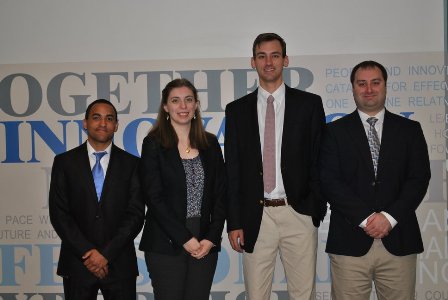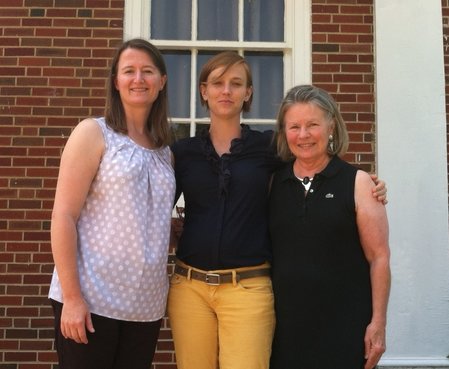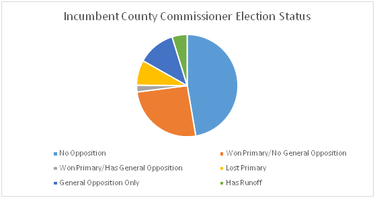
| June 2016, Vol. 10, No.6 | Past issues | Subscribe | Printer Friendly | Advertise | eMagazine Archives |
The U.S. Department of Labor (DOL) has officially set December 1, 2016 as the start date to changes made to the Fair Labor Standards Act (FLSA). The FLSA is a federal law that establishes minimum wage, overtime pay, record keeping, and child labor standards affecting full-time and part-time workers in the private sector and in Federal, State and local governments. The new rule change will essentially provide overtime (and comp time) to more employees. Starting December 1, 2016 the minimum salary for employees not entitled to overtime or comp time is increasing to $913 per week. Employees earning less than $913 per week will be entitled to overtime or comp timer for every hour worked over 40 each week (or 212 hours per 28 days for firefighters and 171 hours per 28 days for law enforcement). In addition, the minimum salary for a "highly compensated individual" to be exempt from overtime or comp time will be $13404 per year. Beginning in January 1, 2020, these minimum salaries will be updated every three years. So what does this mean for county officials? County employers have three basic options:
To ensure a smooth transition into this new rule change, county officials can begin to do the things listed in the More Employees Entitled to Overtime Beginning December 1, 2016 article under the "What County Officials Should Do" section. The DOL will also be conducting webinars that will cover information regarding the overtime rule, and one that particularly deals with state and local governments. To register click on the links found below. General Information on the Overtime Final Rule
Webinar for State and Local Governments
If you would like more information regarding the new overtime rule please visit the DOL’s Wage and Hour Division website or call 866-4USWAGE (866.487.9243). Be sure to check out their fact sheets and elaws Advisor for further guidance.
 ACCG welcomes new summer interns Erin Shumaker, Preston Cox, Branson Mikellm and returning intern Chad Cox. Each semester, the association hires interns to assist the policy, research, legal and communications staff with various projects. Over the course of their internship through August, each intern will be given the opportunity to attend policy meetings, interact with ACCG staff and learn about county government issues.
Chad Cox, policy and research intern, is a graduate of Georgia State University with a degree in political science. He will be pursuing his Master of Public Administration at GSU this fall where he will also serve as a graduate research assistant. Cox assisted the policy staff during the legislative session and is continuing his internship with ACCG through the summer. A Georgia native, Cox was born and raised in Gwinnett County. His hobbies include golf, water skiing and attending country music concerts. During transition periods for retiring county commissioners, collect and compile energy excise tax information, research and compile national 9-1-1 board and fee data, assist with election data compilation and verification, and conduct research on various issues as needed.
Erin Shumaker, policy and research intern, is currently pursuing her Master of Public Administration at the University of Georgia, specializing in public finance. She completed her undergraduate degree in political sicence at Colorado Christian University in 2013. Prior to entering graudate school, Shumaker worked for two years at a charter school in Holly Springs, North Carolina as a financial assistant where she found her love of public finance. She recently completed an internship with the Jackson County Finance Department where she was tasked with drafting the FY 2016 budget document. Upon completing her degree, she wants to become a city or county manager in Georgia. Shumaker is from Fuquay-Varina, North Carolina and will be getting married in December. Over the course of her internship, Shumaker will update county revenue and expenditure data to be used in presentations, update SPLOST and TAVT data, assist with election data compilation and verification, and conduct research on various issues as needed.
Preston Cox, legal intern, recently completed his second-year at the University of Georgia School of Law, where he receives a Law School Association scholarship. He was awarded a Research Clerkship to perform legal research during the school year for a professor who specializes in business law. Last summer, Cox served as legal intern to the U.S. Department of the Interior-Office of the Regional Solicitor in Atlanta and the Cambodia Ministry of Culture and Fine Arts in Phnom Penh. Before law school, he received his Master of Public Administration from Columbia University and earned his undergraduate degree in environmental economics and management summa cum laude from UGA. Cox hopes to work in the goverment affairs field after graduation. In his free time, he enjoys playing tennis, live music, food festivals, and suffering through Atlanta's sports teams. During his internship, Cox will research the appeals process in sovereign immunity cases, provide an inventory for and research histories of financial contracts for the association, finalize the annual salary guide, review and research bylaws for various ACCG boards, update and verify legal citations for ACCG publications, update local legislation salary information for county commissioners and officials, assist with election data compilation and verification, and conduct legal research on various issues as needed.
Branson Mikell, communications intern, recently graduate from Piedmont College with a bachelor's degree in Mass Communications, where he also played lacrosse for four years. At Piedmont he was named to the USA South Athletic Conference All-Academic Team from 2012-2016. Mikell was also a member of the Society of Collegiate Journalists and produced content for Piedmont's student media The Roar. During his internship he will be coordinating the association's social media, sending daily internal state and county news highlights, drafting press releases and articles for Georgia County Government, updating the website and assisting with production of ACCG e-newsletters and magazines. Mikell is from Orlando, Florida but now resides in Buford, Georgia. In his free time he likes to hike, play lacrosse, watch TV and hang out with friends.
On Monday, May 9, the ACCG-Interlocal Risk Management Agency (IRMA) Board of Trustees voted to return a dividend in the amount of $2,750,000 to the ACCG-IRMA membership. ACCG-IRMA is a non-profit, member-owned property and liability insurance pool designed to meet the insurance needs of Georgia County Governments. This marks the fourteenth consecutive year that ACCG-IRMA has returned a dividend. It will be returned in the form of a premium credit to members that have participated in the program since the October 1, 2006 – 2007 policy period. Total dividends returned to the membership since 1997 total $25.3 million dollars.
The dividend is intended to benefit the long-term participants of the insurance program. For 2016-17, the members that have participated in the ACCG-IRMA program since 2006 will receive a dividend that will reduce their premium by an average of almost 10 percent.
In addition to the dividend announcement, Property & Casualty Insurance Programs Director David Uhlman announced that the membership would see an overall increase of less than 1 percent in their 2016-17 premiums. That nominal increase is a result of members’ growth because the overall rates decreased. Uhlman said that each member is rated individually based on their exposures and claims history, so some members will see larger increases while others will see decreases in net premium.
ACCG-IRMA was established in 1987 and currently has 163 members, comprised of Georgia counties and authorities. ACCG-IRMA’s assets are currently $118.6 million. According to Charlie Newton, McDuffie County Chairman and Chairman of the ACCG-IRMA Board of Trustees, the $2.75 million dividend is the largest in the program’s 29-year history.
For information on ACCG-IRMA, please contact Ben Pittarelli or Joe Dan Thompson at (404) 522-5022.
 Georgia County Internship Program Spotlight Brown University Student, Kate Diedrick, Interns with Bartow County Grant Writing Department
Kate Diedrick, a master’s candidate in public humanities at Brown University, interned with the Bartow County Grant Writing Department during the summer of 2015. During her internship, Diedrick provided research support and helped to develop a programming proposal for the former Georgia Institute of Genetics historic site as part of a multi-agency committee.
When asked what she learned about county government through her internship, Diedrick replied that she learned a great deal about how county offices can help to facilitate strategic engagements that create opportunities for multiple stakeholders to build collaborative projects for mutual benefit. She further stated the she learned about the importance of balancing diverse interests in program design, understanding internal and external assets and limitations, creating transparent communication practices and developing clear program and research objectives that tightly align with real county needs and constraints.
In terms of her internship responsibilities, Diedrick noted the major tasks assigned to her which included assisting with the coordination and conduction of a needs assessment process with internal project partners, meeting with partners on a monthly basis, presenting findings and adjusting the research approach as necessary, producing a final product that was based on the needs and wants of the committee that was grounded in rigorous research, and helping to put together a programming proposal based on research findings.
When asked about her favorite part of the internship, Diedrick stated that the project was both challenging and rewarding. She credited her supervisor, Valerie Gilreath, with being a supportive and knowledgeable mentor in helping her to navigate the challenges and suggesting possible opportunities to create solutions. Diedrick enjoyed observing first-hand the work that goes into running a countywide grants office. She further enjoyed searching for ways to provide information that, if not a silver bullet for solving a complex problem, should help to inform future decisions and help those making the decisions better understand the options
In terms of specific skills, experiences or knowledge gained during the internship, Diedrick noted several. She remarked that through her internship, she had the opportunity to conduct a needs assessment and in depth feasibility study research, and work with a diverse group of partners to try to come up with a mutually beneficial programming model. Diedrick felt that these experiences, and the final research report she helped to produce, will prove useful as she looks to broaden her career options in grant writing, research and program design. She further stated that when she applies to positions that require research, program design, communications and project management skills, she will have a number of anecdotes about this experience to share that point to her ability to work on complex projects with various partners. Moreover, the final product from the internship, a 35-page research report, can be provided as a research sample, when requested.
For more information on the GCIP, please visit the ACCG Civic Affairs Foundation.
By the Numbers: Primary Election Results for Georgia County Government The general primary election for Georgia, held on Tuesday, May 24, 2016, included 465 county commissioner positions for 155 counties. The results of these elections can be found on the Secretary of State’s website at http://sos.ga.gov/. Instructions on how to access this information was provided in last month’s newsletter in County Election Results at Your Fingertips: How to Navigate the State Elections Website.
Georgia has a total of 816 county commissioner positions statewide. In this election cycle, 465 (57 percent) of these positions were up for election including 374 incumbents and 91 open seats. Of those commissioners who were eligible for re-election, 89 did not seek to run for another term for their respective seat. There were also two special elections for commissioners, rounding out the total number of open elections to 91. The composition of incumbents seeking re-election included 136 democratic candidates, 212 republican candidates and 26 nonpartisan candidates.
For the 374 races with incumbents, 177 (47.33 percent) did not have any opposition and 96 (25.67 percent) won their primary election and do not have general opposition. Therefore, unless an independent candidate qualifies to run against one of these commissioners in the November general election, 273 sitting commissioners should be returning to office. Of the incumbents running for re-election, 30 (8.02 percent) were defeated. There are a total of 18 runoff elections involving an incumbent (4.81 percent) and 14 runoff elections involving non-incumbents. The runoff election will be held on July 26, 2016. There are 53 incumbents who will face general election opposition on November 22, 2016. Of these 53 incumbents, 45 (12.03 percent) had no primary opposition and 8 (2.14 percent) had primary opposition.

In addition to county commissioner races, there were 35 referendum questions impacting counties on ballots throughout the state. All 35 measures passed. Of these referendum questions, there were 16 Education Special Purpose Local Option Sales Tax (ESPLOST), 12 Special Purpose Local Option Sales Tax (SPLOST), 5 alcohol related, 1 bond package and 1 homestead exemption.
|
| ACCG, Georgia's County Association 191 Peachtree Street NE, Suite 700 Atlanta, GA 30303 phone: 404-522-5022 | fax: 404-525-2477 | ACCG.org |
